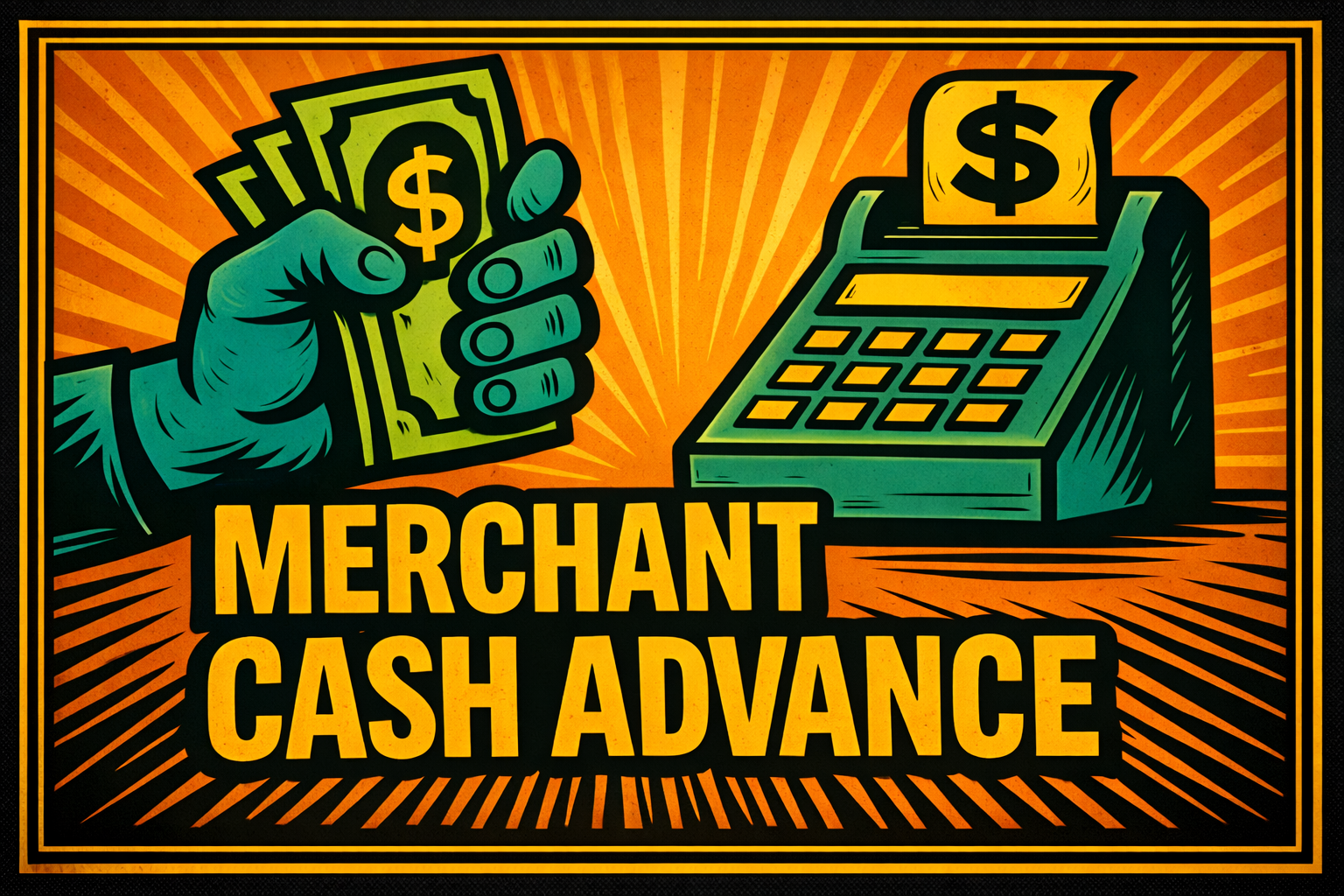
Merchant Cash Advances
“Cha-Ching Today… Settle Later.”
A Merchant Cash Advance (MCA) is a type of business financing where a company receives a lump-sum payment upfront in exchange for a portion of future sales revenue—usually from credit and debit card transactions.
It’s not a loan. More precisely, it’s a purchase of future receivables.
This form of funding is popular with some small businesses that need quick access to working capital, in particular those in industries with steady daily sales, like restaurants, retail stores, and certain service providers.
⚙️ How It Works
You receive a lump-sum advance (e.g., $50,000).
The funder applies a factor rate (e.g., 1.4), meaning you’ll repay $70,000.
Repayment happens daily or weekly, typically via:
A fixed percentage of your daily credit card sales (e.g., 10%)
A fixed daily ACH withdrawal from your business account
The repayment continues until the full amount (advance + fees) is paid back.
✅ Benefits of MCAs
Fast access to capital (often within 24–72 hours)
No collateral required
Minimal documentation (bank statements and sales history)
Flexible repayment tied to sales performance
Available to businesses with poor or limited credit
⚠️ Key Risks and Considerations
High cost: Effective APRs often range from 40% to over 100%
Daily repayment: Can strain cash flow, especially during slow periods
No credit score boost: MCAs typically don’t report to credit bureaus
Stacking risk: Taking multiple MCAs can lead to unsustainable debt
💰 Understanding the Cost
Unlike traditional loans with interest rates, MCAs typically use factor rates:
Advance Amount: $50,000
Factor Rate: 1.4
Total Repayment: $70,000
Not based on time—paid back as fast (or slow) as your sales allow
It is essential to compare MCAs to loans or lines of credit.
🧭 Make an Informed Decision
Merchant Cash Advances can provide lifesaving liquidity—but also pose serious financial risks if not fully understood.
It is essential to:
- Analyze true MCA costs
- Forecast repayment impact on cash flow
- Explore/Compare alternative financing
- Obtain insights from CPA, Banker, etc.
🔁 Alternatives to Consider
Before taking on an MCA, compare with:
| Financing Option | Speed | Cost | Collateral | Best For |
|---|---|---|---|---|
| SBA Loan | ❌ | ✅ | ✅ | Long-term growth, lower cost |
| Business Line of Credit | ✅ | ✅ | Varies | Ongoing working capital |
| Invoice Factoring | ✅ | ⚠️ | No | Businesses with unpaid invoices |
| Equipment Financing | ✅ | ✅ | Yes | Buying machinery, vehicles, etc. |

Final Thoughts on Merchant Cash Advances
Merchant Cash Advances can be a powerful tool for businesses that need fast funding to cover short-term needs or seize time-sensitive opportunities. The speed, flexibility, and ease of access make MCAs attractive—especially for businesses that don’t qualify for traditional loans.
But with that speed comes cost.
MCAs often carry high effective rates and daily repayment structures that can drain your cash flow if not managed carefully. They’re best used strategically, not repeatedly. Business owners should fully understand the true cost, consider all available options, and ensure the advance aligns with a clear revenue-driving plan.
If you’re thinking about taking an MCA:
Run the numbers.
Compare your options.
Make sure repayment won’t slow your business down.
At the end of the day, the right funding should help your business grow, not just get by.

